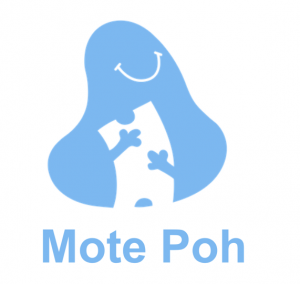Despite Topica’s setbacks, Vietnam edtech is on the radar of some regional investors.
Topica, Vietnam’s leading education tech startup, has been a hard act to follow, even for itself.
In a 2018 interview with Tech in Asia, the founder and then-CEO Tuan Pham was riding high. At the time, Topica was fresh off its announcement of a US$50 million series D funding from Singapore-based private equity firm Northstar Group.

Topica’s founder and former CEO Tuan Pham at an edtech conference / Photo credit: Topica
Two years later, Topica’s series D is still one of the largest funding rounds ever closed by a Vietnamese tech startup. Established in 2007, the company focuses on three core areas: Topica Native, an online English-speech tutoring service for adults; Edumall, a marketplace that features short courses; and Topica Uni, which partners with universities to offer online bachelor’s degree programs.
But in January this year, Tuan stepped down as CEO and was replaced by Nguyen Huy Duc, Topica’s chief financial officer. According to local media reports, Duc said that he would “streamline” operations and invest aggressively in AI-driven products for children and young students.
A report on DealStreetAsia suggested that Topica had laid off the majority of its staff due to pressure from investors and to better manage its operational costs.
Several sources also told Tech in Asia that Topica rushed its expansion, both in terms of products and geographic markets. In response to an email from Tech in Asia, Topica’s new CEO Duc said the company would discuss its current priorities at a later time.
Topica’s troubles show that it’s not easy for startups to crack the sector despite the obvious potential. Vietnam’s edtech market is expected to be worth about US$3 billion by 2023, according to estimates from Ken Research.
The addressable market is quite significant. Vietnam has about 16 million students in primary and secondary levels as well as another 1.7 million studying at universities. Frustration with the current education system prompts Vietnamese families to splurge billions of US dollars each year to send their children abroad.

Parents and students rush to classes in Hanoi / Photo credit: 123rf
“In the past few years, most edtech companies have pursued a similar business model as that of Topica, without any remarkable feature that can differentiate themselves from other big players,” says Vy Le, co-founder of Do Ventures, a Vietnam-focused fund that was launched in September. “There are some innovative edtech [companies] in the markets that receive seed investments, and their sizes are still small.”
With Covid-19 expected to accelerate the growth of edtech, can smaller Vietnamese startups in this sector ride the wave and potentially become the next Topica, Ruangguru, or even Byju’s?
Weathering Covid-19
Austin Carter co-founded Ho Chi Minh City-based startup Edu2Review in 2017 with two others. The startup wants to make it easier for parents and students to get credible information about universities, colleges, language schools, and other education providers in Vietnam and overseas.

The Edu2Review team / Photo credit: Edu2Review
While users can do their own research via Google and Facebook, Edu2Review let them compare course prices, check verified reviews from past learners, get discounts, and receive refunds after a one-week trial, says Carter. For some courses offered locally, students can even book directly on the platform.
Carter, who also serves as chief financial officer, describes the company’s business model as similar to Booking.com, which means Edu2Review charges a commission on each transaction.
But relying on offline centers meant that when Covid-19 struck Vietnam in February, Edu2Review was hit.
He claims that the startup has about 1.5 million monthly active users and around 10,000 education providers listed on its site. In August 2018, Edu2Review announced that it had raised an undisclosed amount from Nest Tech, a Singapore-based venture capital fund.
But relying on offline centers meant that when Covid-19 struck Vietnam in February, Edu2Review was hit. Registration for classes went down by about 25% to 30%, according to Carter, while offline education centers had to burn through their cash reserves and cut down on marketing.
To make up for the drop in course registration, the startup began working with universities for advertising and supporting their student recruitment amid the pandemic. Edu2Review also expanded its offerings for online courses.
For Tony Ngo, chairman and co-CEO of Everest Education, a startup with brick-and-mortar learning centers in Ho Chi Minh City, its decision to develop live interactive online classes paid off.

Everest Education co-CEOs Don Le (left) and Tony Ngo / Photo credit: Everest Education
In August 2019, Everest announced that it had bagged US$4 million in a series B round. The startup operates in the after-school segment, meaning it caters to students who take extra classes in Math and English and do test preparation at its offline facilities.
To reach students in the suburban districts and other provinces, Ngo says that Everest started developing online classes in December 2019. “We were able to move all of our offline classes to online one week into the national shutdown [in February] while other big incumbent offline centers looked relatively sleepy,” he tells Tech in Asia.
Everest doesn’t have an app. Instead, it focuses on the live component of online learning, allowing students to interact and practice with classmates and their teachers. Getting students online allowed the startup to avoid letting any staff go, Ngo observes. “It’s hard to send great teachers everywhere in the country, but you can do that through technology at a much lower cost.”
Long-term obstacles
Nguyen Tri Hien, who runs Hanoi-based edtech consulting firm GetJSC, estimates that there are about 600 e-learning and edtech companies in the country. He points out that about half of them operate in the K-12 segment, offering products and services with little differentiation.
Maria Spies, co-founder and CEO of education market intelligence platform HolonIQ, says that about 20% of edtech firms in Vietnam covers language learning, followed by workforce upskilling, STEM (science, technology, engineering and math) and coding as well as international education and study.
Besides Topica, no other company has really dominated any market segment. And with Topica having to restructure and slow down, smaller edtech startups must overcome long-existing barriers before they can think about pulling ahead of the pack, according to experts interviewed by Tech in Asia.

Students in Ho Chi Minh City / Photo credit: 123rf
They note that Vietnam’s education system in general takes a passive approach. As such, it doesn’t really encourage independent or online learning. With the boom of ecommerce and financial tech, paying for online services has taken off in the country. Opening wallets for online courses, however, is still fairly new. Most Vietnamese parents remain traditional and prefer keeping children at schools and offline centers.
Giang Le, a mother of a 12-year-old, says she prefers Khan Academy, a US-based nonprofit edtech organization, because the English content is top-notch, interactive, and totally free. She also uses VietJack.com, a homegrown platform that digitalizes all official learning content as required by public schools.
It also doesn’t help that investments in Vietnam’s edtech sector have been fairly limited, with only US$3 million record for the first half of 2020.
As Covid-19 forced Vietnam to shut down schools nationwide from February to May, Giang says she started searching for online learning platforms. “What I don’t like about local edtech platforms is that there are too many ads. That isn’t the case for foreign platforms.”
It also doesn’t help that investments in Vietnam’s edtech sector have been fairly limited, with only US$3 million record for the first half of 2020, according to an estimate by Do Ventures. In contrast, US$64 million flowed into retail during the same period.
Tram Ho, co-founder and CEO of Kyna for Kids, an online learning school for children and students below 10th grade, explains that it’s challenging for local edtech startups to raise substantial funding. “You need a larger pool of startups with proven, go-to-market solutions,” she says.
“Edtech startups need initial funding to build products […] It’s not just about building a platform to match demand or a marketplace to sell courses. It’s really about building engaging content and technology for a seamless learning experience and optimized operations,” she adds.
Tram also previously ran Kyna.vn, a marketplace that provides skills-focused short courses for adults, directly competing with Topica’s Edumall. In December 2019, she sold Kyna.vn to Navigos Group, which owns popular job and recruitment portal Vietnamworks.com.
The absence of sizable funding rounds means that some edtech companies have to opt for a merger. A notable name in the K-12 segment is online education marketplace Hocmai (which means “keep learning” in Vietnamese).
Founded in 2007, Hocmai claims to serve 4 million students and has 1,200 courses for every grade level on its website – still a rather modest number for a 13-year-old startup. In August, it was acquired by Vietnamese media and entertainment group Galaxy.
Knocking on the door
Meanwhile, foreign players are giving Vietnam’s edtech scene a necessary jolt.
Leading Indonesian edtech startup Ruangguru, which raised a whopping US$150 million last year, quickly expanded to Vietnam as its first overseas destination.
Though its efforts in Vietnam are nascent, Ruangguru operates Kien Guru, which targets students from elementary to high school. According to advertisements on its website, Kien Guru has 6,500 video lectures and tutorials with more than 50,000 practice questions, which are available to users for as low as 3,400 dong a day (US$0.15).
US-based language-learning app Duolingo, which is valued at US$1.5 billion, also considers Vietnam as a high-priority market in Asia due to a strong interest to learn English.
In February, Snapask, an on-demand tutoring app based in Hong Kong, announced its US$35 million series B round. Founder and CEO Timothy Yu specifically identified Vietnam as its next expansion target in Southeast Asia, citing a growing demand for tutoring and private education services.

Photo credit: Snapask
To compete with well-funded foreign providers, especially in English and language learning, local startups need to capitalize on their understanding of what Vietnamese parents and students demand, says Kyna’s Tram.
For example, courses on Kyna for Kids tend to be more test-oriented rather than game-based. “We understand that Cambridge English Assessment is very popular and well-regarded in Vietnam. So we focus on helping students to do well on the test – that would open doors to good schools,” she adds. “It would be very difficult if we compete based only on animation or content with edtech startups from more advanced countries like China or South Korea.”
Ngo from Everest Education also thinks that foreign players can leverage “their tech ability and general know-how,” but the go-to market has to be hyperlocal.
“So many players have tried to be a regional one-stop shop. But you can’t be Sea or Grab because their business models are more easily adaptable across geographies, which is fundamentally different from edtech,” says Ngo. “For edtech, we have to provide different content for each market. Your curriculum and assessments are going to be different.”
The right model
But whether Vietnam’s edtech scene can produce more star players like Topica or Ruangguru could depend also on the rise of fintech companies, which can spur online payments for education services, or telecom providers, which can bring cheap internet even to the country’s far-flung areas.
In emerging markets such as Vietnam, business-to-consumer edtech models “are attractive but difficult to get off the ground where the ability to pay is low,” says Spies of HolonIQ. “On the other hand, business-to-business sales in education is traditionally very slow and fragmented.”
While the country’s edtech sector seems to be under the radar compared to fintech and ecommerce, its potential could attract more investor interest in the future.
Shuyin Tang, a partner at Patamar Capital, agrees that there’s tremendous opportunity in the sector. “While Topica is the leader in delivering upskilling for working professionals, the K-12 segment is much more fragmented. The challenge here is how to deliver an engaging, effective learning experience at an affordable, mass-market price point.”
The Tech in Asia Conference 2020 report predicts that many parents in Southeast Asia will be more willing to invest in their children’s schooling. To benefit from this, edtech startups can bridge the gap between online and offline learning or improve learning management and communication.
Holon IQ estimates that from 2015 to 2020, Southeast Asia drew about US$480 million in edtech VC investment.
A survey conducted by Do Ventures of 50 active funds among six major markets in the region identified education as among the top three sectors that investors will focus on in Vietnam in the coming year.
“Our fund has been actively looking for startups in the edtech sector. We prefer to invest in startups that can provide an innovative online class model with good content and quality instructors,” says Vy of Do Ventures.
Source from: vnexplorer.net


 July 28, 2022
July 28, 2022 


